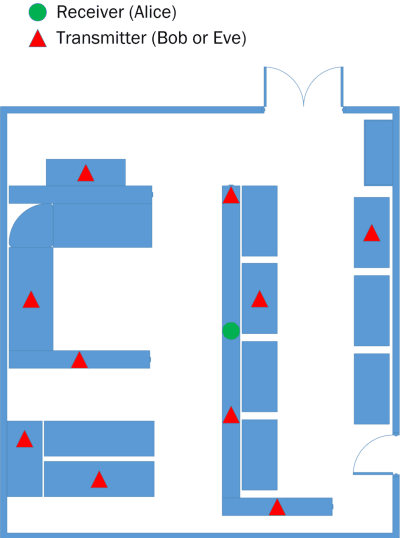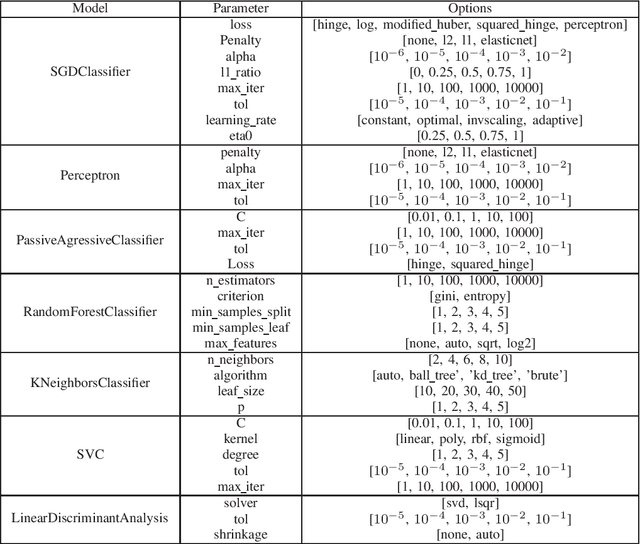Supervised Learning for Physical Layer based Message Authentication in URLLC scenarios
Paper and Code
Sep 13, 2019



PHYSEC based message authentication can, as an alternative to conventional security schemes, be applied within \gls{urllc} scenarios in order to meet the requirement of secure user data transmissions in the sense of authenticity and integrity. In this work, we investigate the performance of supervised learning classifiers for discriminating legitimate transmitters from illegimate ones in such scenarios. We further present our methodology of data collection using \gls{sdr} platforms and the data processing pipeline including e.g. necessary preprocessing steps. Finally, the performance of the considered supervised learning schemes under different side conditions is presented.
* arXiv admin note: text overlap with arXiv:1711.05088
 Add to Chrome
Add to Chrome Add to Firefox
Add to Firefox Add to Edge
Add to Edge